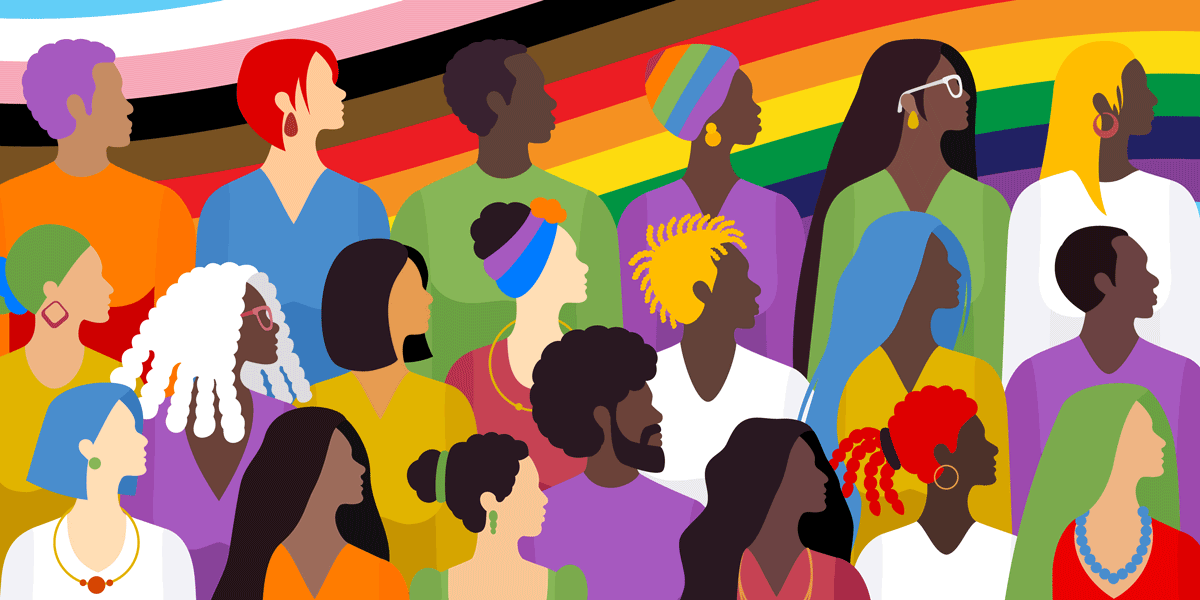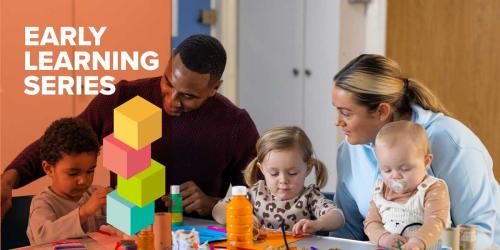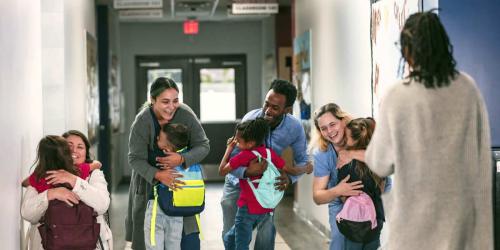We’ve Got Pride: Embracing Chosen Families to Equitably Support Youth

This month, and throughout the year, we celebrate the bravery and resiliency of queer youth and embrace the opportunity to ask what we can learn from queer culture about how to best support young people.
We invite you to join us in celebrating Pride by examining the role of chosen family and how it can help educators cultivate more supportive learning environments for queer youth. (We are using “queer” as an umbrella term for anyone who does not identify as straight and/or people who have gender-expansive or gender-nonconforming identities.)
Networks of Support and Resilience
Many queer youth embrace the concept of chosen family—non-biological, kin-like relationships. For Christian Rummell of Mentorist, “Chosen family is about belonging, connectedness, and building a network of support with people who are in your corner.”
Chosen families can be important assets that help queer youth navigate the barriers they may encounter in their families of origin, school, and broader social world. “In a climate that often shames, stigmatizes, and ‘others’ LGBTQ+ people, finding your chosen family—including building relationships with people who can mentor and guide you—can be a powerful way to build resilience,” Rummell told us in a recent conversation.
National school climate surveys from GLSEN, the Human Rights Campaign, and the Trevor Project consistently demonstrate that queer youth experience a more negative school climate. These negative experiences result in queer youth being more likely than their cishet peers experience mental health issues—including depression and suicidal ideation—and to self-medicate in response.
Getting By With a Little Help From Your Fam
Chosen families often include informal mentors—supportive teachers, school staff members, and out-of-school allies. Queer youth look to these figures for acceptance and guidance as they navigate an unjust society. Caring teachers who provide informal mentorship and a resulting sense of school connectedness support both mental health and positive educational outcomes for queer young people.
These informal mentors can act as kin-like support by:
- Learning essential terms
- Modeling inclusive pronouns
- Including LGBTQ+ representation in curriculum
- Enforcing anti-bullying and harassment policies
- Facilitating conversations about identity with care
Youth Voice as Key Feature in Chosen Family
A key feature of a chosen family is the ability of youth to choose the key informal mentors themselves. Centering youth voice is of utmost importance, as marginalized queer young people may experience poor relationships that hinder their development of trust. In fact, marginalized people of wide-ranging backgrounds cite trust as a key factor in choosing their informal mentors. Young people must be in charge of determining who they trust enough to consider an informal mentor.
How Educators Can Embrace Chosen Family in Schools
Schools and out-of-school programs are ideal places for queer youth to build a chosen family. Clubs at school, such as Genders & Sexualities Alliances, significantly reduce the likelihood of homophobic victimization. Inclusive programming across school and out-of-school spaces protect queer youth against poor mental health experiences.
Supportive social networks are essential not only for LGBTQ+ youth, but for all youth—and adults! It is important for us to make space for youth voice. Resources like MENTOR’s Becoming a Better Mentor teach all adults how to demonstrate themselves to be trustworthy potential informal mentors while preserving the young person’s autonomy in deciding whether to seek out and establish a mentoring relationship with them. By fostering informal mentorships with supportive adults, schools can create equitable learning environments where all students feel accepted and supported.



